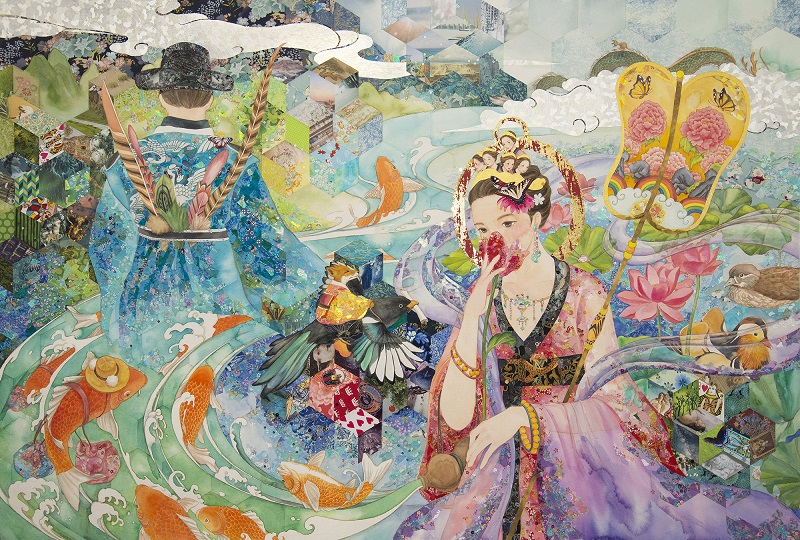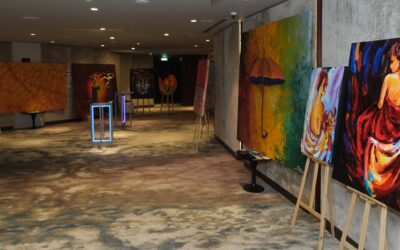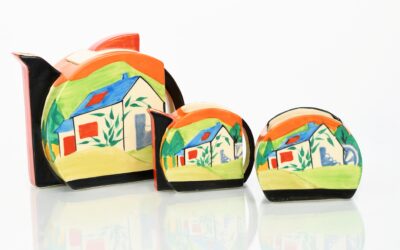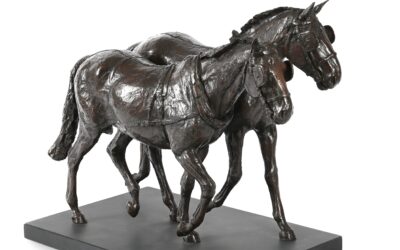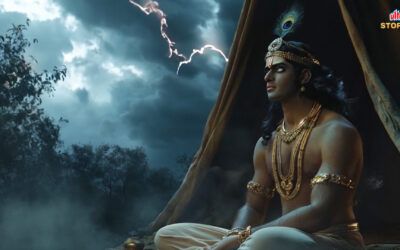Korean-born visual artist Suyeon Na investigates the fluidity of the self and the complexity of the world around her through surreal imagery, craft and words. Na relocated from Korea to the US and from the US to Japan again. The problems of social and psychological adaptation as an immigrant and woman are quietly represented within the narrative of her work.
Some of her inspiration stems from Asian folklore, mythology and religious iconography that heavily influenced her childhood. Meanwhile, conflicts arising between different social and cultural expectations towards women’s behavior and manners are often demonstrated in the images of troubled young girls and wild animals in her work. The cycle of birth, marriage, and regeneration as a woman is another central theme of Na’s work.
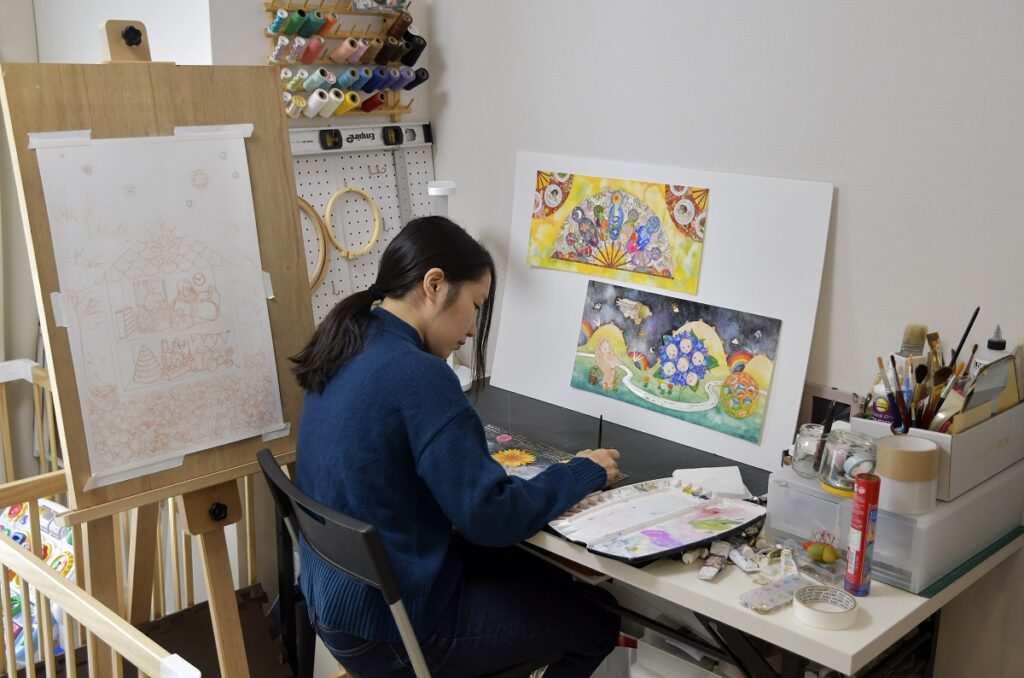
Suyeon Na in her working space
Na received a BFA from Seoul National University in Seoul, Korea and a MFA from Pratt Institute in New York, U.S.A. Her work has been widely exhibited at numerous venues, including New York Foundation for the Arts, Context Art Miami, Scope New York, Chashama Gallery, the Brooklyn Public Central Library, Textile Arts Center and ISE Cultural Foundation in the U.S., the Seoul Arts Center and Uijeongbu Arts Center in Korea. She has been awarded artist grants and studio spaces from the Vermont Studio Center, Chashama Visual Arts Studio, and the Contemporary Artists Center in the U.S. Suyeon Na’s works are held in many private and public collections, including the Jordan Schnitzer Museum of Art at Oregon, U.S.
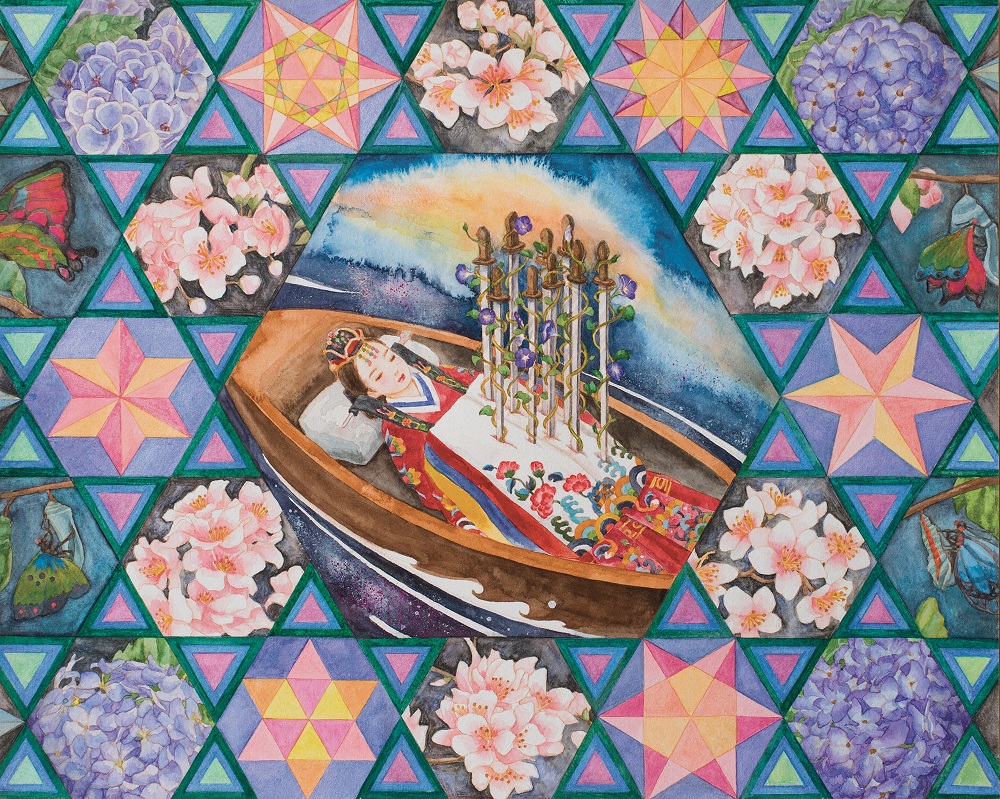
Let Me Shine On You
What’s integral to the work of an artist?
Thoughts and emotion. For me, good art is like a mirror to make viewers reflect on themselves, showing their deepest emotions and inner thoughts that they neglect in a busy and fast-paced life.
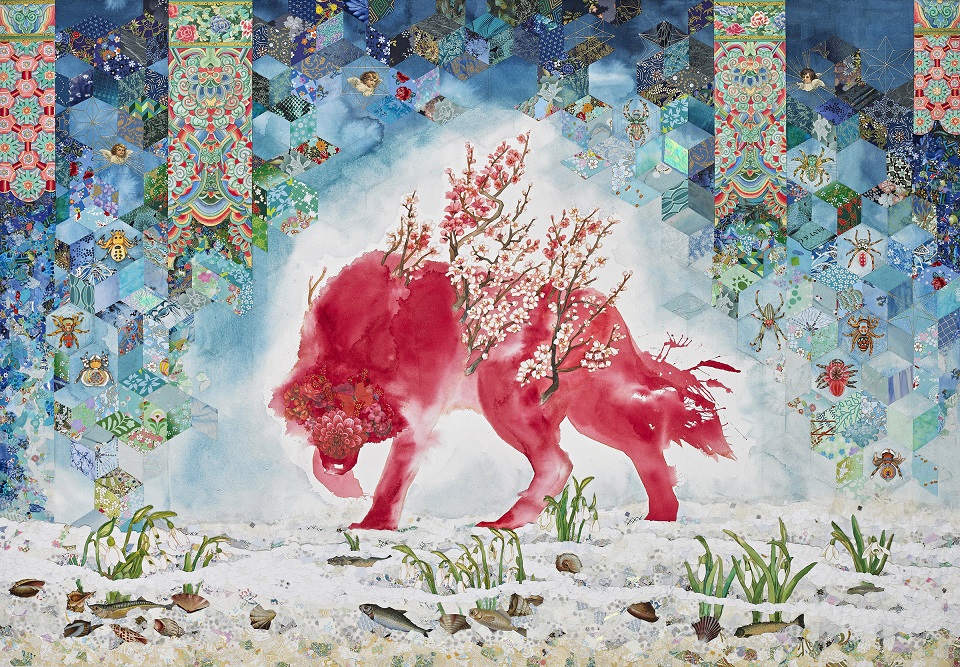
Following Stars
What role does the artist have in society?
Sometimes I feel being asked about artist`s role connotes it must be ‘useful’ in society. Art can affect people’s life, revealing what they bury in their busy life. We are all related with the time and space we live in, so what we think and how we feel are influenced by the way the current world works. We can realize some issues in the society by delving into our psychology which art shows to us. Further we might be able to change them. But that’s not what one artist can be sure that he or she will achieve. Personally, I think if viewers enjoy my work in any aspect, I’ll be happy enough.
What art do you most identify with?
Artworks which have psychological and narrative qualities.
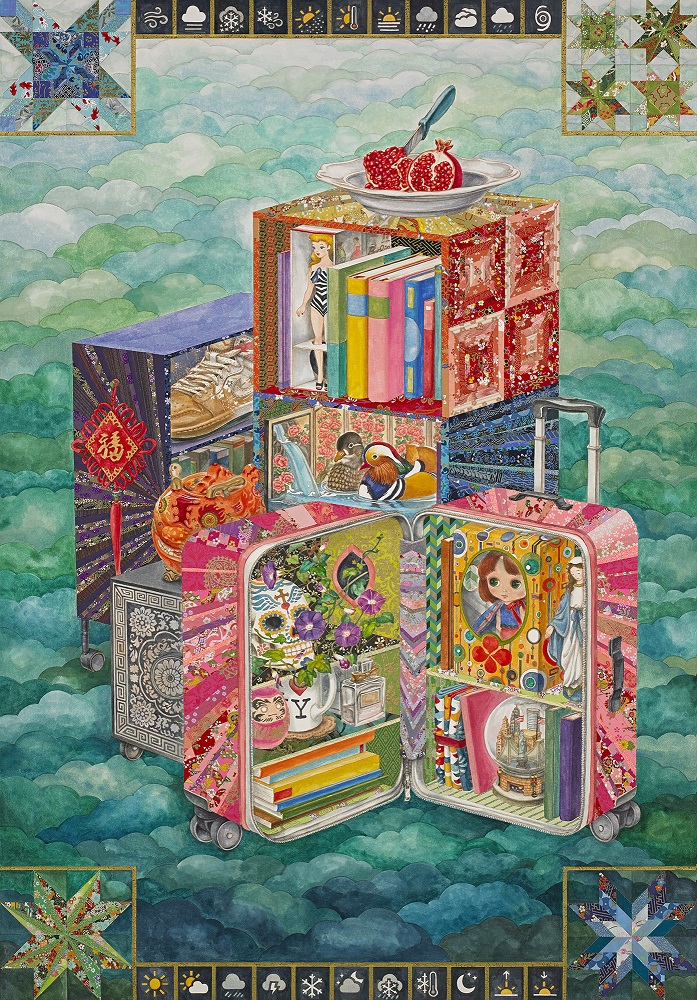
Possessions
What themes do you pursue?
My life as a woman and immigrant and what I observe in my environment. I immigrated from Korea to the U.S in 2006 and relocated from New York to Tokyo in 2019 again. Many of my works came from these experiences.
What’s your favourite art work?
I love to see folk art and decorative art from all over the world. Many of Kiki Smith and Louise Bourgeois’ works fascinate me. Also I’m drawn to some outsider artists’ works including Henry Darger and Martin Ramirez.
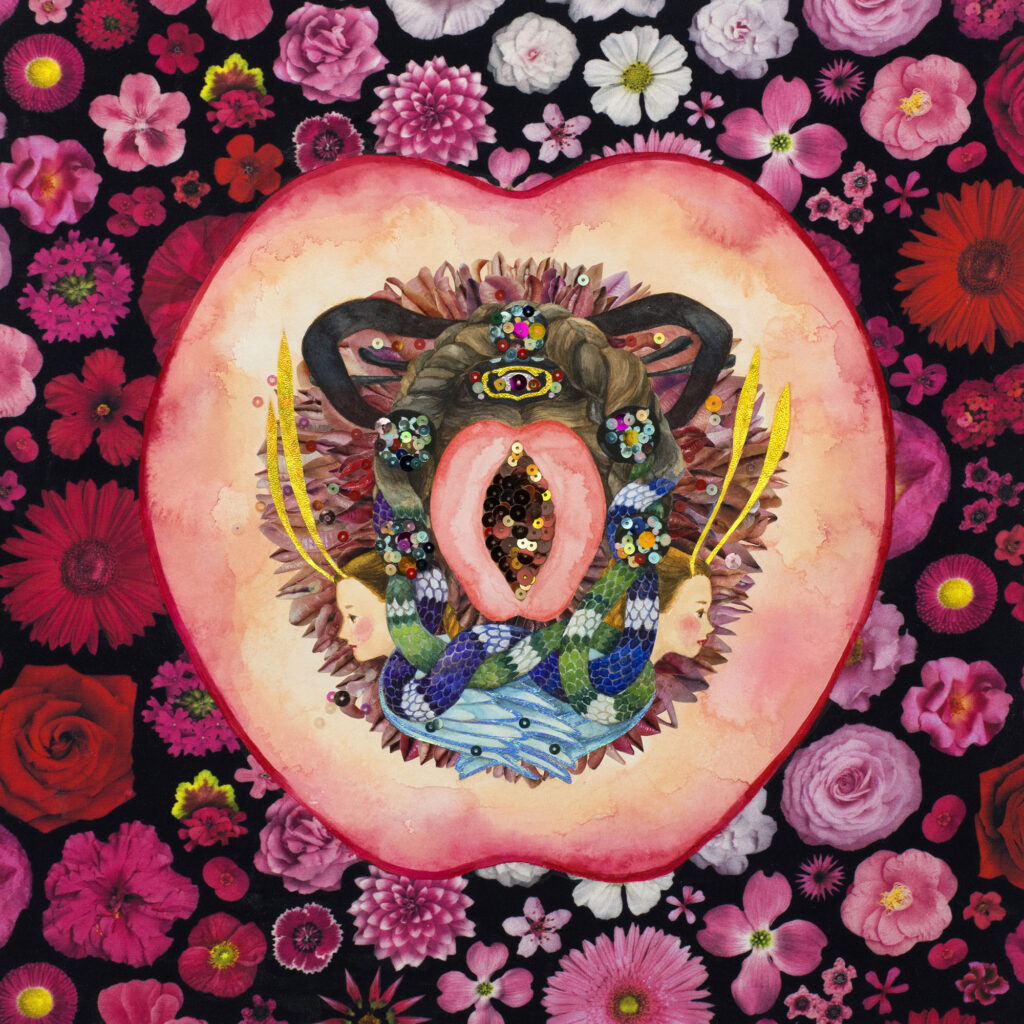
Empress
Describe a real-life situation that inspired you?
Adjusting in new societies and cultures has been an overwhelming experience for me. On the other hand, it allowed me to observe and perceive difference and universality in each culture. In addition, I became a mother this year. That inspired me in a way that I never expected.
What jobs have you done other than being an artist?
Art teacher, costume maker and an illustrator.
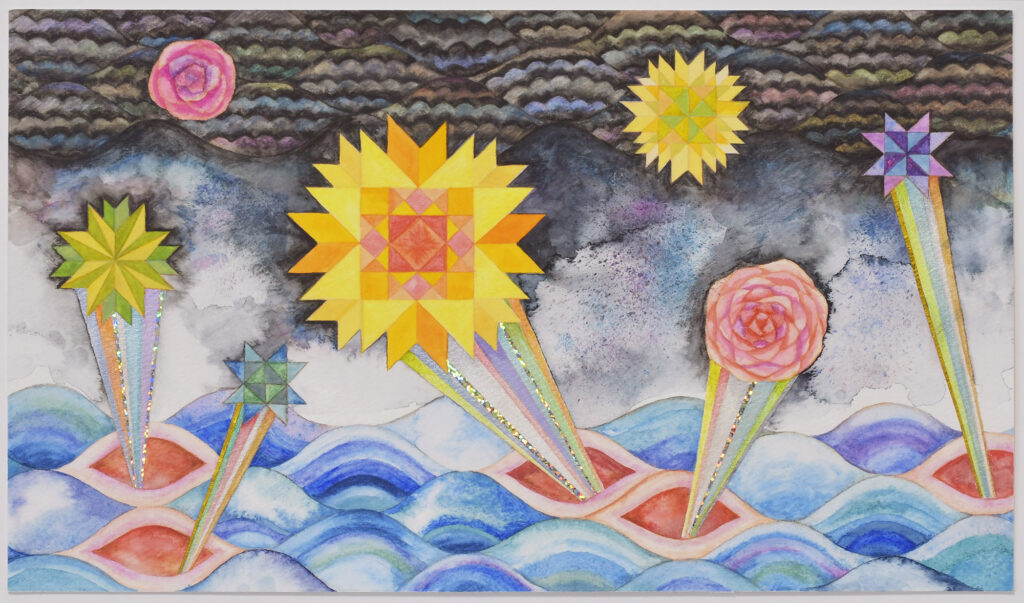
Festival of Life
Why art?
Art is a psychological outlet. I had stopped creating art for a year when I was in my twenties. I bottled up my emotions and I felt like I was lost. From the experience, I realized I needed to keep creating art. Besides I went to art high school to be an artist and have drawn pictures like a journal even long before I was a teenager. Creating art is a huge part of my identity.
What is an artistic outlook on life?
Maintaining curiosity about the world and finding beauty in one’s life.
What memorable responses have you had to your work?
Once a fellow artist and curator saw my work and told me exactly what I was thinking while I was making it-the thought that I couldn’t put it in words. I felt like my secret was revealed but at the same time, I felt understood. It was a very impressive moment.
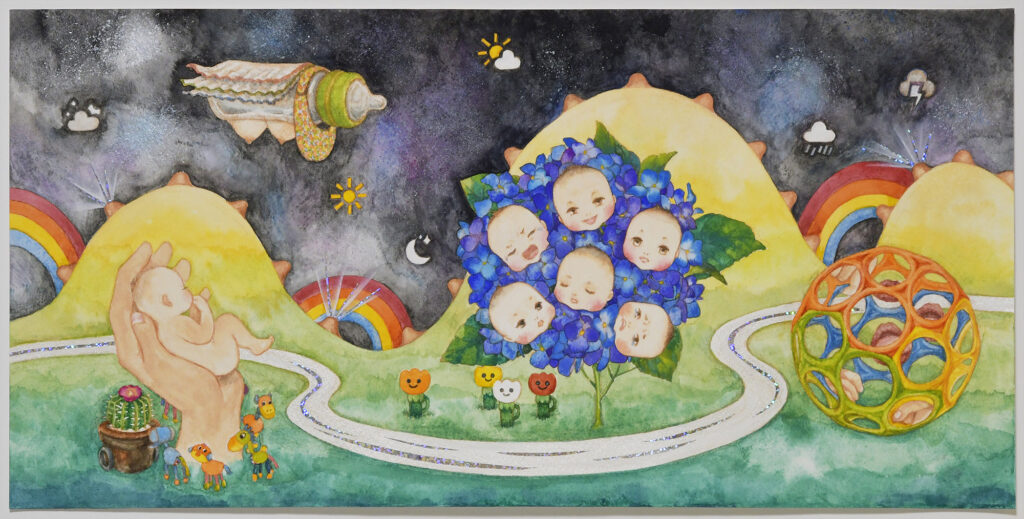
Baby’s Dream
What food, drink, song inspires you?
I drink coffee often to focus but I don’t listen to music or songs while making art. Instead, I listen to American or Japanese Drama as a background, in order to get used to foreign languages. It’s been an old habit since I left my home country. One of my most recent paintings was inspired by ingredients for baby food(!). I’ve never cooked so often and researched ingredients so much in my life. Being a mother has influenced my life and art a lot, for sure.
Is the artistic life lonely? What do you do to counteract it?
Probably it is. But loneliness is inevitable in the life of an artist. It’s impossible to create art without quiet, lone time. I think fortunately artists are the type of people who can deal with loneliness relatively better than others and even enjoy it to some extent.
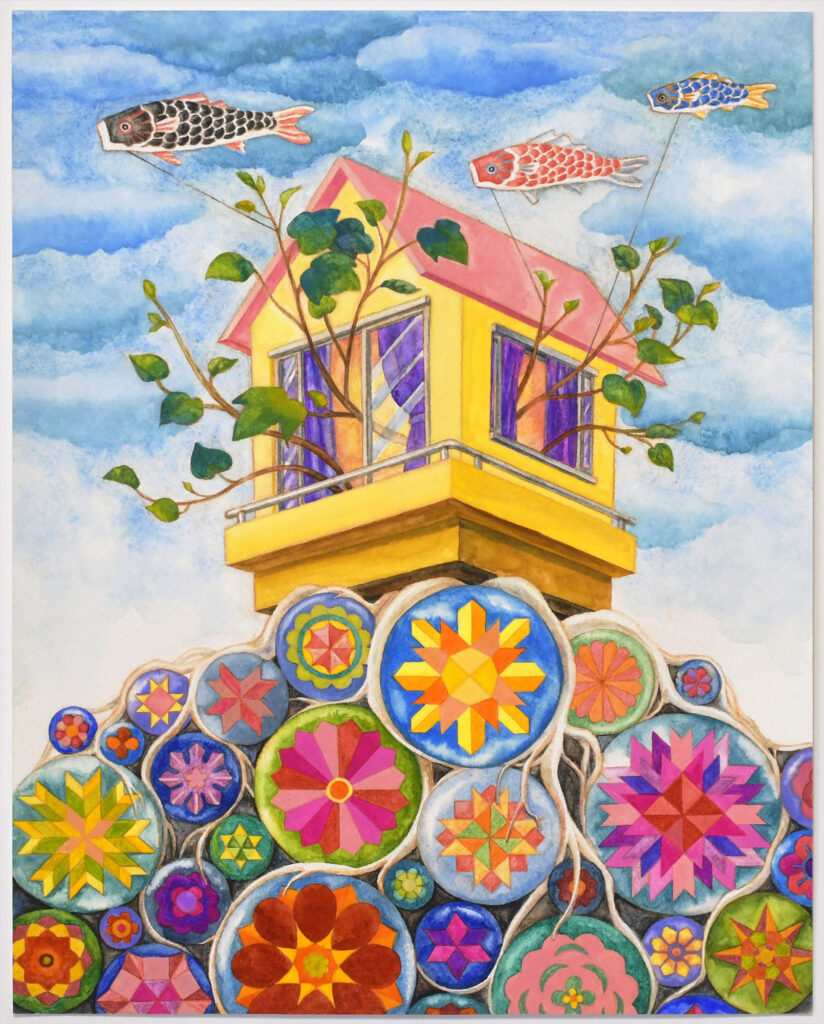
Dream House
What do you dislike about the art world?
The word, ‘art world’ sounds very ambiguous to me, but if I think about Japanese art galleries and museums-they dont seem very interested in investing or featuring new emerging artists residing in Japan. They are interested in famous Japanese artists living outside of Japan. I like Kusama Yayoi and Yoshitomo Nara’s work, but I want to see some fresh emerging artists’ works especially the ones that recognize the contemporary issues in Japan.
What do you dislike about your work? /16. What do you like about your work?
My paintings are very close to my personal life. But that is like both sides of a coin. I dislike that I feel I need to defend the worth of my art to others and sometimes even to myself. My work is not directly connected with public interest, so is it worthy to others? Making art doesn’t guarantee anything practical, such as money, job or social status. Do I have to continue? I’ve had these questions for a very long time. Nevertheless I am compelled to draw.
Should art be funded? What role does arts funding have?
Yes. Only a few percent of artists survive by selling their works regularly. Funding from various sources- not only private collectors but also government organizations- will be helpful to support and promote diversity of art.
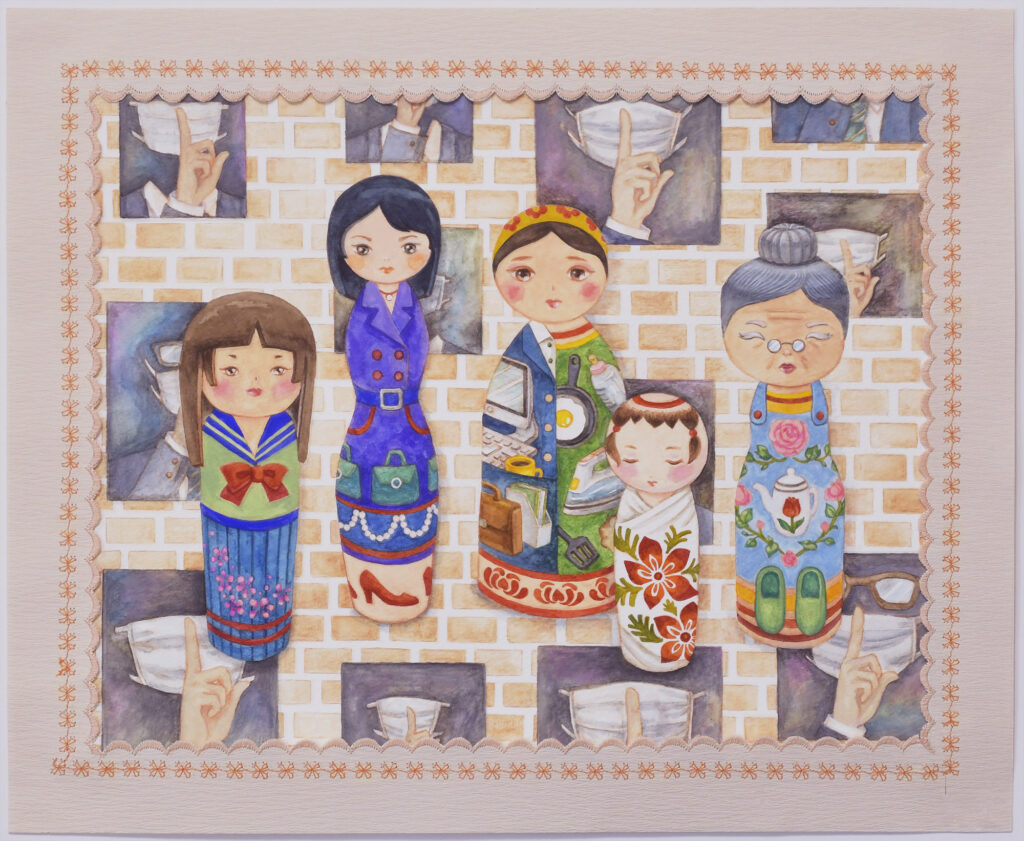
Walls within walls
What is your dream project?
As a new mother, currently I struggle with time and space that I can create art. I’d like to draw large-scale paintings someday. To me that day wont arrive so easily or soon, but I will definitely do it sooner or later.
Name three artists you’d like to be compared to.
I look up to many artists but can’t think of anyone in particular.
Favourite or most inspirational place?
Any serene place where I can be alone and at peace.
What’s the best piece of advice you’ve been given?
I read a piece of advice from another artist’s interview long time ago. ‘If you do not have to be an artist, don’t’. I’ve kept asking the question to myself and kept making art until now.
Professionally, what’s your goal?
Soon after I moved from New York to Tokyo, Covid-19 broke out. In addition, I got pregnant and became a mother. I haven’t had much time or chance to rebuild my artistic career in Japan. My goal for the near future is to keep creating works and to restart exhibitions here gradually.
Future plans?
I have an exhibition at the Kameyama Triennale in Mie-ken, Japan in October which has been postponed because of the pandemic for two years. My current plan is to create as many artworks as possible until then.


